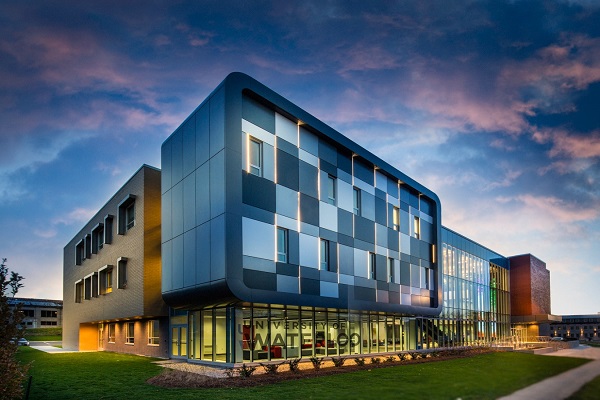Symposium On Commercialization Sparks Curiosity Across University Of Waterloo
The path to commercialization is long and winding and its twists and turns necessitate mentors along the way, attendees heard at the symposium Demystifying Commercialization, which explored how to best succeed on the path from research to commercialization.
Graduate students, research fellows and faculty attended the half-day event hosted by Velocity, Waterloo Commercialization Office (WatCo) and the Business Development Bank of Canada (BDC).
John Dick, director of Velocity Campus, said researchers are used to asking the question, “is this possible?” But are less familiar with asking the question, “does anyone need this?” He argued that those best suited to commercialize a technology are the ones who created it.
“We say at Velocity that we can work with anyone with committed interest — or passion if you will — to something,” he said. “I’d say that everyone in this room has demonstrated exuberant amounts of committed interest just by devoting the amount of time and effort you have into researching.”
Velocity and WatCo created the Up Start program for student researchers, founders and recent alumni to access funding and work closely with the advisers to conduct market research, develop a business plan and have access to resources from the two University of Waterloo departments to help with the journey from researcher to founder.
Dick said it is imperative to seek guidance on the journey towards commercialization as, compared to academic research, it takes a different mindset to succeed.
“Commercialization is something that solves an industry problem, and it takes a lot of work. You want to make sure there’s a market and that the market is big,” he said. “This is Velocity’s expertise, and we can help you with the process to get it started.”
Panelist Evelyn Allen, CEO and Co-founder of Evercloak, said while it may seem daunting compared to working for an established company, creating one’s own business venture is a real possibility.
“Building things take time, and there’s so much potential at the University to take that next step towards commercialization,” Allen said. “There is also a lot of impact potential. It just takes more time and patience.”
Ten entrepreneurial teams are set to be the first to work with Up Start and receive funding towards transforming their research into commercial ventures. Up Start is accepting applications.

